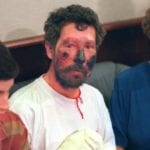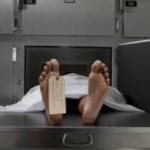 Our World
Our World  Our World
Our World  Pop Culture
Pop Culture 10 Incredible Female Comic Book Artists
 Crime
Crime 10 Terrifying Serial Killers from Centuries Ago
 Technology
Technology 10 Hilariously Over-Engineered Solutions to Simple Problems
 Miscellaneous
Miscellaneous 10 Ironic News Stories Straight out of an Alanis Morissette Song
 Politics
Politics 10 Lesser-Known Far-Right Groups of the 21st Century
 History
History Ten Revealing Facts about Daily Domestic Life in the Old West
 Weird Stuff
Weird Stuff 10 Everyday Products Surprisingly Made by Inmates
 Movies and TV
Movies and TV 10 Actors Dragged out of Retirement for One Key Role
 Creepy
Creepy 10 Lesser-Known Shapeshifter Legends from Around the World
 Our World
Our World 10 Science Facts That Will Change How You Look at the World
 Pop Culture
Pop Culture 10 Incredible Female Comic Book Artists
 Crime
Crime 10 Terrifying Serial Killers from Centuries Ago
Who's Behind Listverse?

Jamie Frater
Head Editor
Jamie founded Listverse due to an insatiable desire to share fascinating, obscure, and bizarre facts. He has been a guest speaker on numerous national radio and television stations and is a five time published author.
More About Us Technology
Technology 10 Hilariously Over-Engineered Solutions to Simple Problems
 Miscellaneous
Miscellaneous 10 Ironic News Stories Straight out of an Alanis Morissette Song
 Politics
Politics 10 Lesser-Known Far-Right Groups of the 21st Century
 History
History Ten Revealing Facts about Daily Domestic Life in the Old West
 Weird Stuff
Weird Stuff 10 Everyday Products Surprisingly Made by Inmates
 Movies and TV
Movies and TV 10 Actors Dragged out of Retirement for One Key Role
 Creepy
Creepy 10 Lesser-Known Shapeshifter Legends from Around the World
10 Plane Stowaways Who Miraculously Survived
It is a very bad idea to stowaway on a plane. Unless you are lucky enough to sneak onto the cabin, you will most likely die. Your body can not take the freezing temperatures and low oxygen of high altitudes. Very few stowaways—less than 25 percent—manage to survive their flight. Here are a few of those fortunate people.
10Mario Steven Ambarita
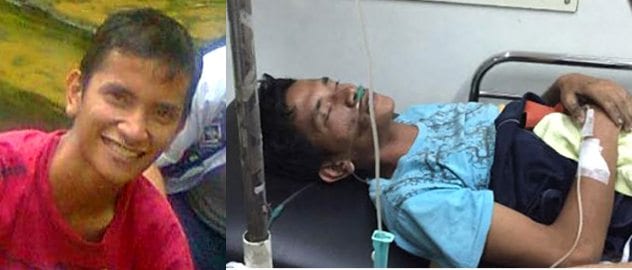
Mario Ambarita really wanted to meet Joko Widodo, the President of Indonesia. However, Widodo lived in Jakarta, and Ambarita lived over 800 miles away. He decided that he needed to hitch a ride on an airplane to get to Jakarta. He spent a year studying airplanes’ landings and liftoffs. Ambarita learned from the Internet how to hide in a wheel well—a tiny compartment that houses the airplane’s wheels when the plane is in flight. He then spent ten days studying an airport.
Ambarita was convinced that he could make the journey. He climbed the eight-foot security fence and waited for the plane headed to Jakarta. When the plane stopped at the end of the runway, he climbed into the wheel housing. Ambarita spent nearly two hours in thin air and sub-zero temperatures.
He collapsed when he arrived at the airport. Ambarita was rushed to the hospital. He had a bleeding ear and his fingers were frostbitten. Luckily, he did not have any permanent damage. Ambarita was brought to the police station, and he spent a night in jail. He did not suffer any other punishments.
9Yahya Abdi
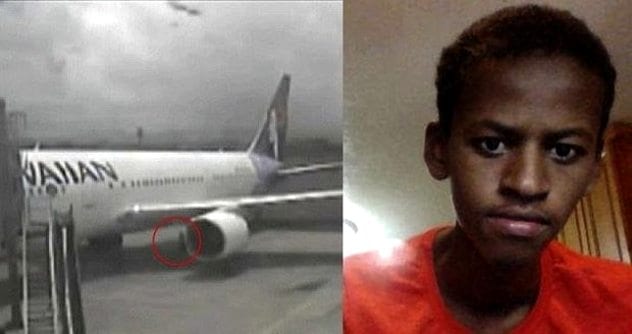
Yahya Abdi, a 15-year-old Somali immigrant, was having difficulties adjusting to his life in America. He had problems in school, and he did not get along with his new stepmother. Abdi deeply missed the home he had left with his family eight years earlier. More importantly, he missed his mother; his father had told Abdi that she was dead. Abdi was enraged when he found out his father had lied; his mother lived in a refugee camp in Ethiopia. Abdi’s father had taken the children without her knowledge.
Abdi left home. He went to an airport and snuck onto the first plane that was headed west. Abdi spent five-and-a-half hours hiding in the cramped wheel well. He lost consciousness early in the flight; however, he managed to survive the low oxygen and freezing temperatures.
When the plane arrived, he jumped down and collapsed. Abdi was disoriented, thirsty, and he could barely walk. He was hospitalized for a while, but he fully recovered. Abdi also got to speak to his mother for the first time in eight years. They both hope to be reunited with each other one day.
8Bas Wie
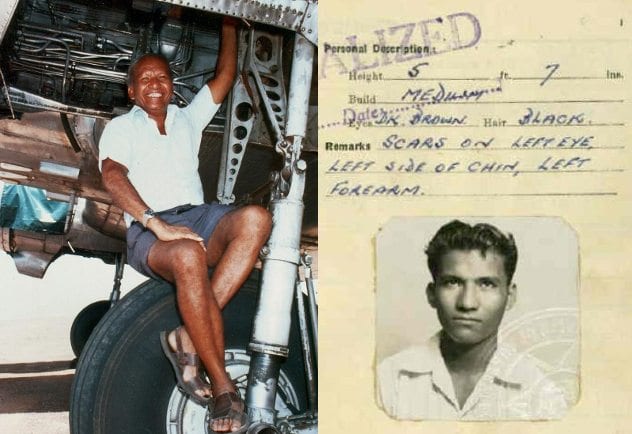
In 1946, Bas Wie had a dim future. He was an orphaned 12-year-old Indonesian boy, who had to work for food in the kitchens of an airport. One day he saw a plane headed for Australia, and he decided that he wanted to be on it. Wie remembered the kindness of the Australian soldiers who had given him bully beef and sweets. He hoped that Australia would be kind again.
He snuck into the wheel carriage, and he stayed there for the three-hour plane ride. It was not a pleasant journey: he was burnt by the exhaust, he had a deep cut on his shoulder, and he suffered from freezing cold blasts from the propellers. Wie spent months in the hospital recovering from his injuries.
He faced another problem once he was healed. At the time, Australia had an anti-Asian immigration policy. Many people wanted to send the boy back to Indonesia. However, he was allowed to stay in Australia to give him a better chance at life. Wie was adopted by a local family, and he became an Australian citizen twelve years later.
7Fidel Maruhi
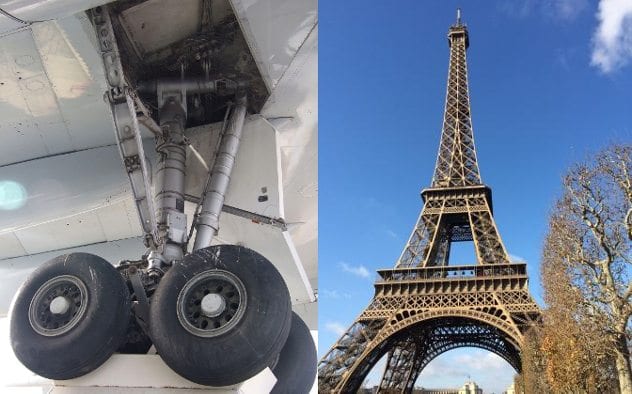
Fidel Maruhi wanted to change his life. He was broke, and his mother had recently died. Maruhi decided to start his life over in Paris, which he considered to be the most beautiful city in the world. Plus, Paris was home to his idol, soccer player Zinedine Zidane. Maruhi really wanted to meet him.
Unfortunately, Maruhi lived in Tahiti, which is thousands of miles away from his dream city. He knew that he would need to take a plane to Paris, and he knew that he could not afford a ticket. Maruhi decided to stowaway in the wheel well of an airplane. He managed to board the plane uneventfully, however, he fainted five minutes after the plane was airborne. He could not breathe at the high altitude.
Maruhi’s unconscious body was found in Los Angeles, where the plane had a layover. His body was covered in grease, and the wind had shredded his clothes. When he arrived at the hospital, his temperature was 79 degrees; a temperature below 85 degrees is usually fatal. Maruhi spent the night under heat lamps, and he recovered. His only lingering injury was a numbed foot.
He was sent back to Tahiti a few days later.
6Andrei Shcherbakov

Fifteen-year-old Andrei Shcherbakov wanted to escape his family. His father drank too much, and his family often argued. Shcherbakov took a taxi and went to the airport. He saw a hole in a fence and squeezed through it. Then he walked up to a big plane, climbed up the landing gear, sat on a tire, and fell asleep.
When he woke up, the plane was in the air. He was so scared that he fainted. When the plane landed, Shcherbakov tried to climb out of the plane, but he collapsed. He could not control his legs. An ambulance hurried him to a hospital. His hands and feet were so severely frostbitten and swollen that doctors had to struggle to remove his jacket and shoes.
Unfortunately, his family could not afford the expensive treatment at the hospital in Moscow, and they had to take him back to Perm. Shcherbakov was put in a local hospital. However, his hands never recovered from the hours spent in minus 50 degree temperatures. The tissue started dying, and doctors had to amputate both of his hands.
5Armando Socarras Ramirez
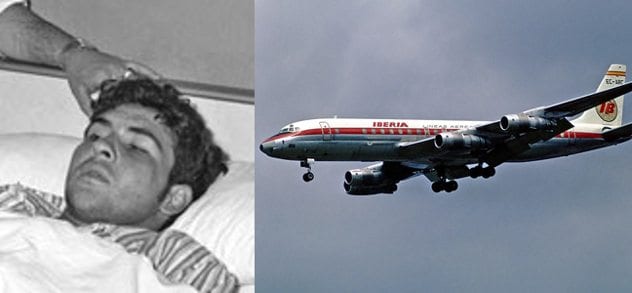
Seventeen-year-old Armando Socarras Ramirez wanted to escape Cuba in 1969. A year earlier the government had shipped him to a vocational school; however, his classes were often interrupted to plant sugarcane. Ramirez also had a constant fear of being drafted into the army. He dreamed of a better life.
He met another teen, Jorge Perez Blanco, who felt the same way. Together they plotted an escape: they planned to stow away in a wheel well of a plane headed to Madrid. They snuck into an airport and waited for their plane. The boys knew it would stop for a moment before it turned around to take off—that is when they ran for it. They scurried up the wheels and realized that they would have to separate. There was barely enough room for one in the wheel well.
Ramirez crammed himself in the tiny space; he could scarcely move when the wheels retracted. He managed to take some aspirin to dull his pain: the noise from the plane was deafening. Fortunately, he did not endure these conditions for very long—Ramirez passed out from lack of oxygen after an hour.
His frozen body fell to the ground when the plane landed, and he was brought to the hospital. Ramirez’s temperature was so low that it did not register on the thermometer. Miraculously, he recovered. Doctors said that he had only survived with “luck, luck, luck—many tons of luck.” Ramirez’s luck continued as he was allowed to move to Canada to live with relatives.
Unfortunately, Ramirez’s friend was not as lucky. Blanco was not in the airplane when it landed. He had probably fallen when the plane had lowered its wheels to land.
4Emilio Dominguez
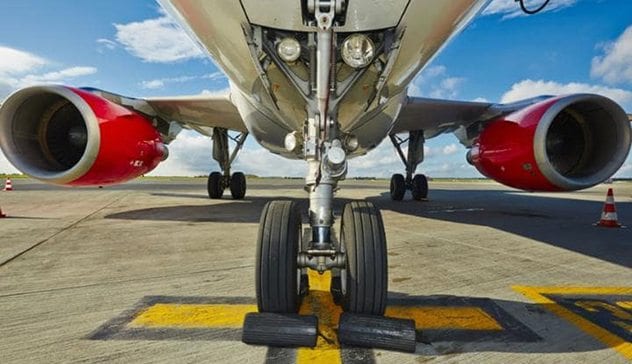
Emilio Dominguez could not find a decent job in Honduras, and he decided that he would have better luck in the United States. Dominguez found a plane that was flying to Miami. He snuck into an airport and hid inside the plane’s wheel well. Dominguez spent more than a day hiding in there.
The flight was only two hours long. However, it must have seemed longer to Dominguez. He spent the entire flight shivering: he had only worn a short-sleeve shirt, jeans, and work boots to combat the freezing winds.
When the plane arrived, Dominguez dropped out of the wheel well and staggered away. He was spotted by mechanics, who turned him over to the police. Surprisingly, he was in good physical condition. Dominguez had no injuries and strong vital signs; he did not even need to go to the hospital. He had picked a good airplane to stowaway on. The wheel well had been somewhat pressurized, which helped him breathe easier.
Dominguez was sent back to Honduras a few days after he arrived.
3Victor Alvarez Molina
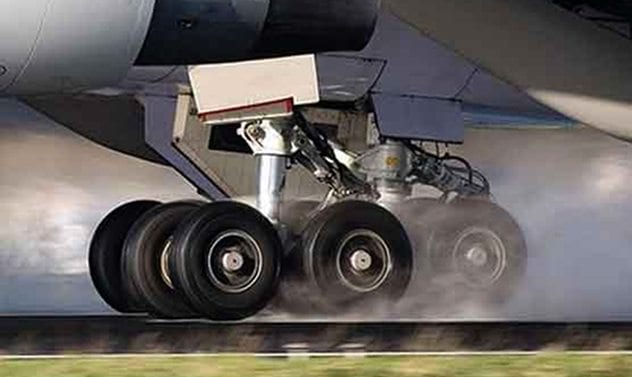
Airline worker Victor Alvarez Molina was surprised when his wife called to warn him to leave Cuba. However, he decided to heed her warning, and he planned his escape. Molina decided to head for Montreal. He tucked himself into a wheel well of a plane and prayed for good fortune. Molina clutched a photo of his daughter and dreamed of a better life.
Molina spent four hours in the freezing, oxygen-deprived air. Fortunately, he was near a leaky heat pipe, which provided a small amount of air and heat. It was enough to sustain him. He made it to Montreal. He was exhausted, and he was suffering from hypothermia. But he was alive.
The Canadians took pity on the Cuban refugee, and they allowed him to stay. If they had sent him back to Cuba, he would have faced severe punishment: at least 15 years in prison, if not a death sentence.
Molina adapted to his new country. He found work at a car dealership, and he took French lessons. He hopes that his family will soon join him.
2Osama R.M. Shublaq
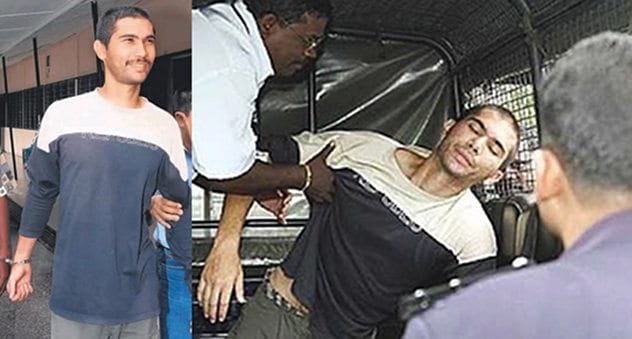
Osama R.M. Shublaq was terrified. He had entered Malaysia on a social visit visa, and it was expiring. Shublaq did not want to return to Palestine. He had tried to seek political asylum, but it was not granted—even though Shublaq lived in a conflict-ridden area.
Shublaq decided that he should travel to a different country. He scaled the fence of a local airport and climbed into the nose wheel well of an airplane. The plane was headed to Singapore, which was only a 55-minute ride away.
The short distance saved him. Planes that travel short distances do not fly as high as planes with longer routes. The lower altitude made it easier to breathe. When the plane landed, Shublaq fell nearly eight feet to the ground. He was a bit dizzy from his journey, but he was otherwise unhurt.
Singapore sent him back to Malaysia. He faced trespassing charges, which carried a penalty of two years in prison. However, the country took pity on his situation and dropped the charges. They just sent him back to Palestine.
1Charles McKinley
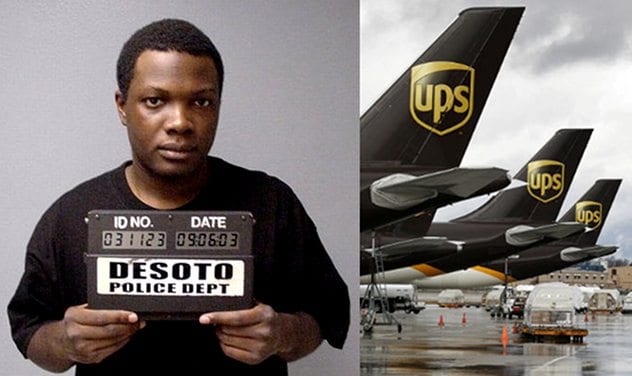
Charles McKinley was miserable. He had broken up with his girlfriend, and he was deeply in debt. McKinley wanted to go home to his parents, but he could not afford the 1,500-mile trip home. He had no money and no credit card. All he had was a UPS charge card from his job.
McKinley spotted a large wooden crate on the side of a street and had an idea: he could ship himself home. McKinley called UPS and scheduled a pickup. Before they arrived, he removed two slats of wood and squeezed himself through the hole. McKinley replaced the slats and waited.
He was picked up an hour later, and no suspicions were raised. His box was put on an airplane, and, luckily, into a pressurized hold. If he had been placed in an unpressurized hold, he would have died. McKinley spent the flight wandering around the hold. He slipped back into the box before the plane landed.
McKinley’s box was picked up from the airport, and it was brought to his family’s home. When the delivery driver started to unload the box, some of the slats fell out of the crate. The driver saw McKinley peeking through the gaps and called the police.
Although the police first feared that he was a terrorist, they soon realized that he was simply poor. McKinley pleaded guilty to a charge of misdemeanor stowaway. He was given four months of house arrest and a $1,500 fine.



